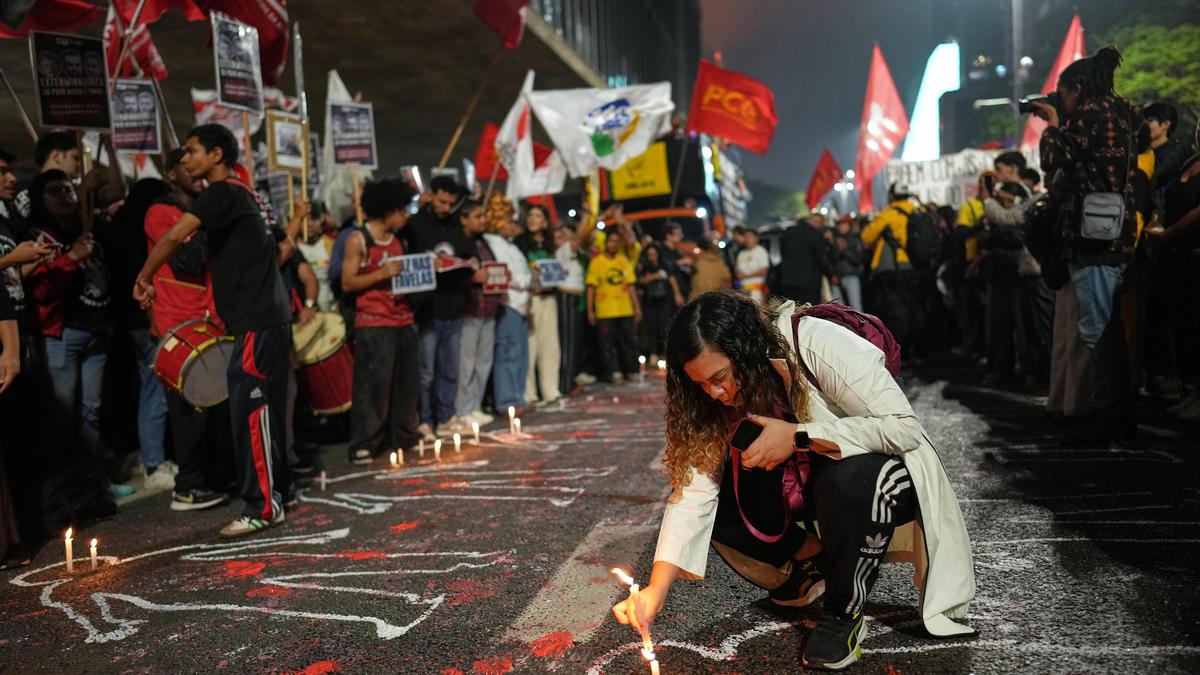Last Tuesday (October 28, 2025), before the sun had risen over Rio de Janeiro’s low hills, two favelas (shantytowns) on the city’s northern fringe were surrounded by heavily-armed troops as their armoured cars growled through narrow lanes and bursts of gunfire rattled the red-brick dwellings. The operation against the Comando Vermelho (Red Command) gang, which controls the city’s drug trade, lasted for hours.
By afternoon, the favelas had turned into a war zone — smoke billowed from cars burning in the streets, bodies lay in side alleys, and an acrid haze swept through the sprawl where residents hid in their tiny homes. By the time fingers were lifted from the triggers of automatic rifles, 64 people — including four police officers — lay dead. Within hours, Rio de Janeiro’s governor Cláudio Castro appeared before cameras, hailing the operation as a “great success,” even as Brazil erupted in debate over it
Continue Reading on The Hindu
This preview shows approximately 15% of the article. Read the full story on the publisher's website to support quality journalism.
